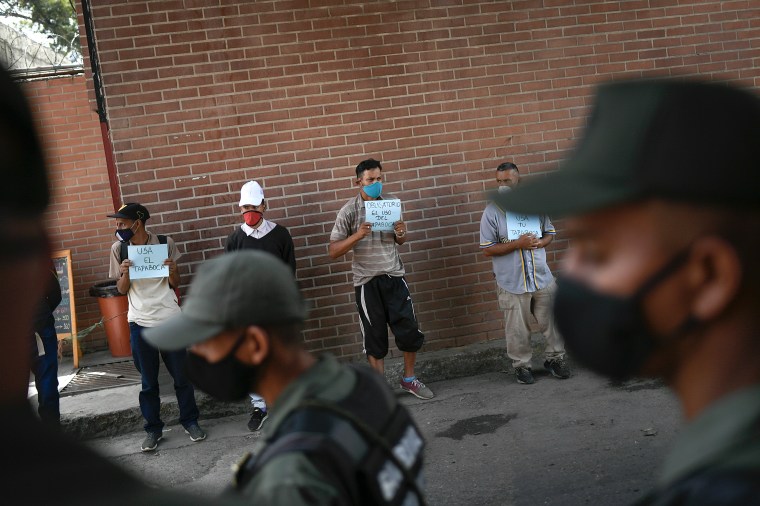Miami, July 21, 2020 – Venezuelan authorities should immediately drop all charges against journalists Otilio Rodríguez and Nicmer Evans, release Evans immediately, and stop using the country’s anti-hate law to persecute the press, the Committee to Protect Journalists said today.
On July 13, at about 2 p.m., police and counterintelligence agents raided Evans’ Caracas home in his absence, and confiscated a mobile phone and other equipment, according to tweets by Venezuelan press freedom organization Espacio Público.
At about 8 p.m. that evening, agents arrested Evans, founder and director of the independent news website Punto de Corte, according to a video he posted on Instagram handing himself over to the agents. In the video, Evans displays the arrest warrant issued by the 21st Tribunal of Control of the Metropolitan Area of Caracas, charging him with inciting hate under the country’s 2017 Anti-Hate Law for Tolerance and Peaceful Coexistence.
On July 15, National Guard troops in the town of Carúpano, in eastern Sucre state, detained Rodríguez, a reporter for privately owned radio station Pura Candela, charged him with violating the anti-hate law, and released him about 20 hours later, according to news reports and Espacio Público.
If convicted of violating the anti-hate law, Rodríguez and Evans could each face up to 20 years in prison, according to the text of the law.
Evans is detained at the headquarters of Directorate General of Military Counterintelligence in Boleíta, Caracas, according to Edgar Cárdenas, secretary-general of the Caracas division of the National Union of Journalists, a local trade organization, who spoke with CPJ via messaging app.
“Venezuela’s vague anti-hate law is once again being used against the press, with Nicmer Evans and Otilio Rodríguez just its latest victims,” said CPJ Central and South America Program Coordinator Natalie Southwick, in New York. “Authorities should drop all charges against the journalists, release Evans immediately, and reform this law, which has repeatedly been used to harass and criminalize the media.”
Venezuela’s anti-hate law was approved by the National Constituent Assembly in November 2017; as CPJ documented at the time, the law does not define basic terms like hate, leaving it open to broad interpretation. Last month, two other journalists were charged with the anti-hate law, and remain under house arrest, as CPJ documented.
On July 17, authorities presented Evans in court, where a judge confirmed the charges against him and ordered him to remain in custody at the headquarters of the Directorate General of Military Counterintelligence pending investigation, according to Espacio Público.
Local journalists tweeted that they believe Evans’ detention was reprisal for Punto de Corte’s journalism, which frequently criticized the Venezuelan government.
“Punto de Corte is an outlet that has had a strong critical editorial line. This can be understood as a retaliation,” according to Cárdenas.
Authorities arrested Rodríguez after he reported on the National Guard’s alleged involvement in selling black-market gasoline amid fuel shortages in the country, according to news reports.
The National Press Workers Union tweeted that Rodríguez was held at the National Guard barracks in Carúpano and that troops confiscated his mobile phone. CPJ’s phone calls seeking comment from the Defense Ministry, which oversees the National Guard, were not returned.
Venezuela’s judicial system partially shut down due to restrictions related to the COVID-19 outbreak, but Carlos Correa, director of Espacio Público, told CPJ via messaging app that once the lockdown ends, Rodríguez will be required to make regular appearances before a criminal court judge as his case proceeds.
CPJ called the Directorate General of Military Counterintelligence and the Caracas police at the phone numbers listed on their websites, but no one answered.
